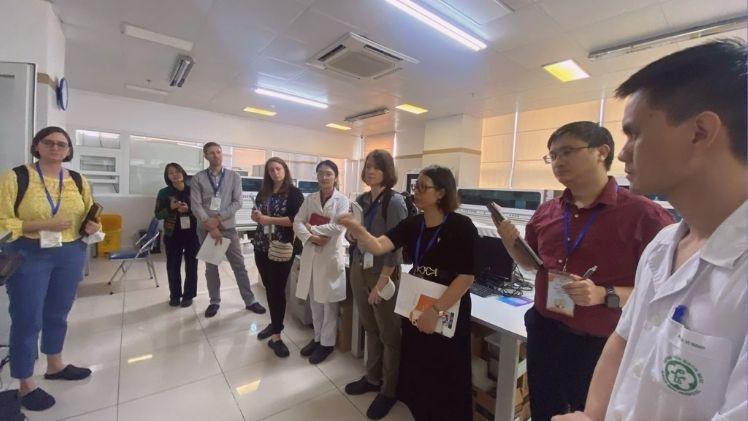The Centers for Disease Control and Prevention (CDC) plays a vital role in improving cdc global health news. Through its wide-ranging initiatives, partnerships, and research, the CDC tackles pressing public health challenges worldwide. This blog dives into the latest updates, highlights key programs, and explores how the CDC contributes to enhancing global wellness.
The Role of CDC in Global Health
The CDC is a leading institution in global health, working to combat diseases, enhance healthcare systems, and respond to emergencies. Its mission is to save lives and protect communities worldwide through evidence-based strategies.
Key Global Health Challenges Addressed by the CDC
The CDC addresses significant challenges such as infectious diseases, non-communicable diseases, and health emergencies. Its efforts focus on combating malaria, HIV/AIDS, tuberculosis, and emerging threats like COVID-19.
Recent CDC Global Health News Highlights
Recent updates include advancements in vaccine distribution, disease outbreak responses, and partnerships to strengthen health systems in low-resource settings. These efforts reflect the CDC’s ongoing commitment to global health security.
CDC’s Approach to Disease Surveillance
The CDC employs innovative tools and technologies for disease surveillance, enabling early detection and rapid response to outbreaks. Programs like the Global Disease Detection program exemplify these efforts.
Impact of CDC’s Vaccination Campaigns
Vaccination campaigns led by the CDC have significantly reduced the prevalence of deadly diseases like polio and measles. Collaborative efforts ensure equitable access to vaccines in underserved regions.
CDC Partnerships with Global Organizations
The CDC partners with organizations such as the World Health Organization (WHO) and UNICEF to amplify its impact. These collaborations enhance global health outcomes by pooling resources and expertise.
Innovations in CDC’s Global Health Strategies
The CDC adopts cutting-edge technologies, such as AI and genomic sequencing, to improve public health interventions. These advancements enable more effective disease prevention and treatment.
CDC’s Role in Strengthening Health Systems Worldwide
By training healthcare workers and improving infrastructure, the CDC bolsters the capacity of health systems in developing nations. These efforts help sustain long-term health improvements.
Public Health Emergency Responses by the CDC
The CDC’s rapid responses to global health emergencies, such as Ebola and Zika outbreaks, demonstrate its readiness to address crises effectively. Its work mitigates the impact of such emergencies on communities.
The Future of CDC’s Global Health Initiatives
The CDC’s vision for global health includes expanding access to healthcare, advancing research, and fostering resilient healthcare systems worldwide.
Conclusion
The CDC’s dedication to global health is pivotal in addressing today’s public health challenges. From combating infectious diseases to strengthening healthcare systems, its initiatives are improving lives around the globe. As the CDC continues to innovate and collaborate, it remains a cornerstone of global health advancement, ensuring a safer and healthier world.
FAQs about CDC Global Health News
1. What is the CDC’s primary role in global health?
The CDC focuses on combating diseases, responding to health emergencies, and enhancing healthcare systems globally to promote public wellness.
2. What are some recent CDC global health initiatives?
Recent initiatives include vaccine distribution programs, disease outbreak responses, and collaborations to improve healthcare in low-resource areas.
3. How does the CDC support disease surveillance?
The CDC employs advanced tools and technologies for early detection of outbreaks, such as the Global Disease Detection program.
4. Which organizations does the CDC partner with?
The CDC partners with global entities like WHO, UNICEF, and other health agencies to maximize its impact on global health challenges.
5. What is the future of CDC’s global health programs?
The CDC aims to expand access to healthcare, foster innovative research, and strengthen health systems to ensure sustainable global health progress.

